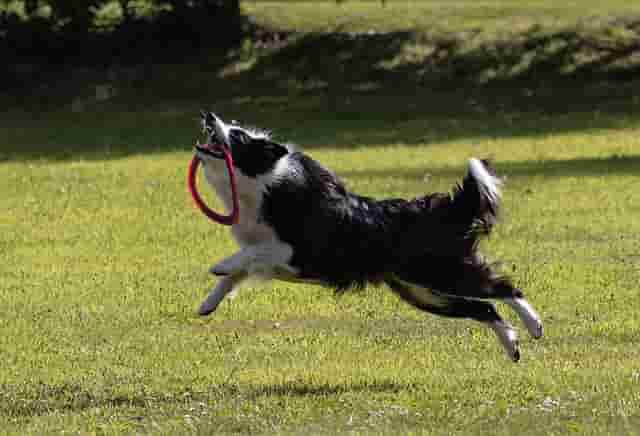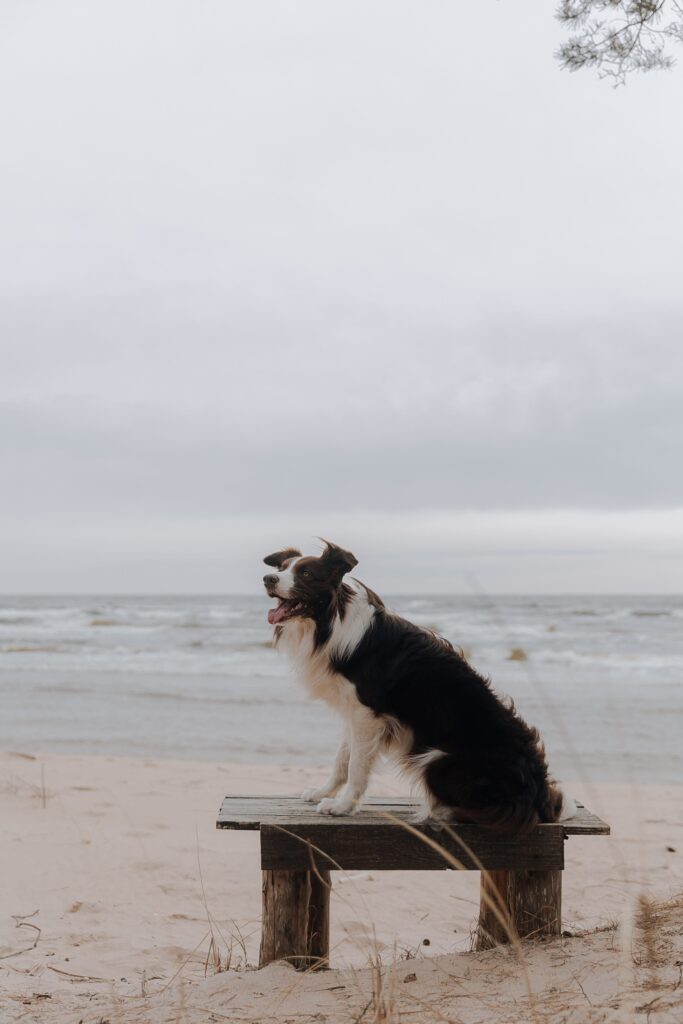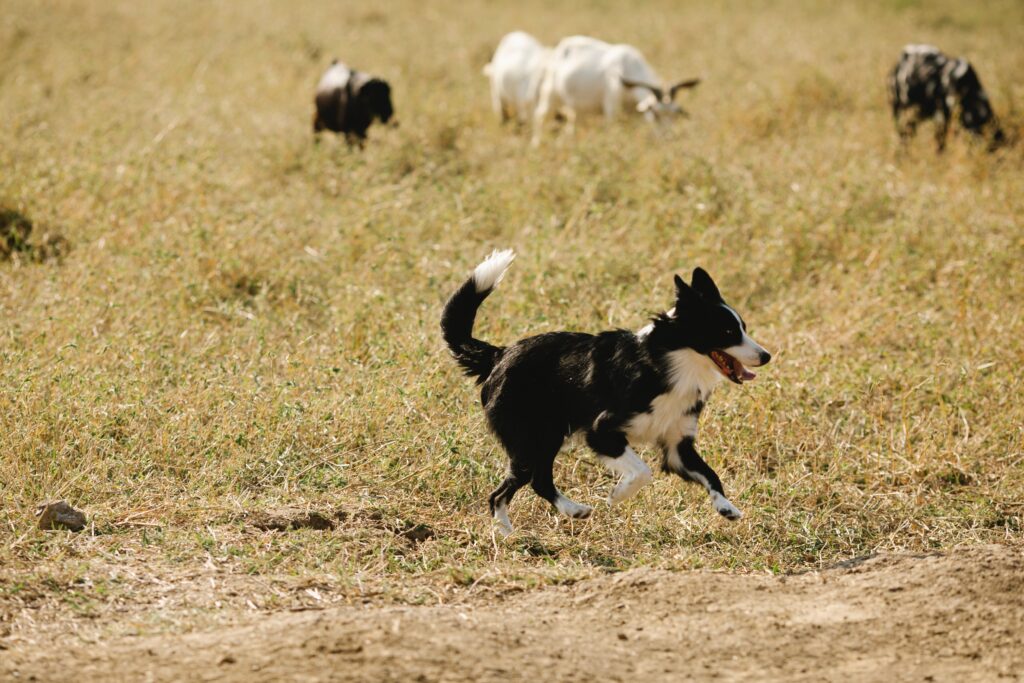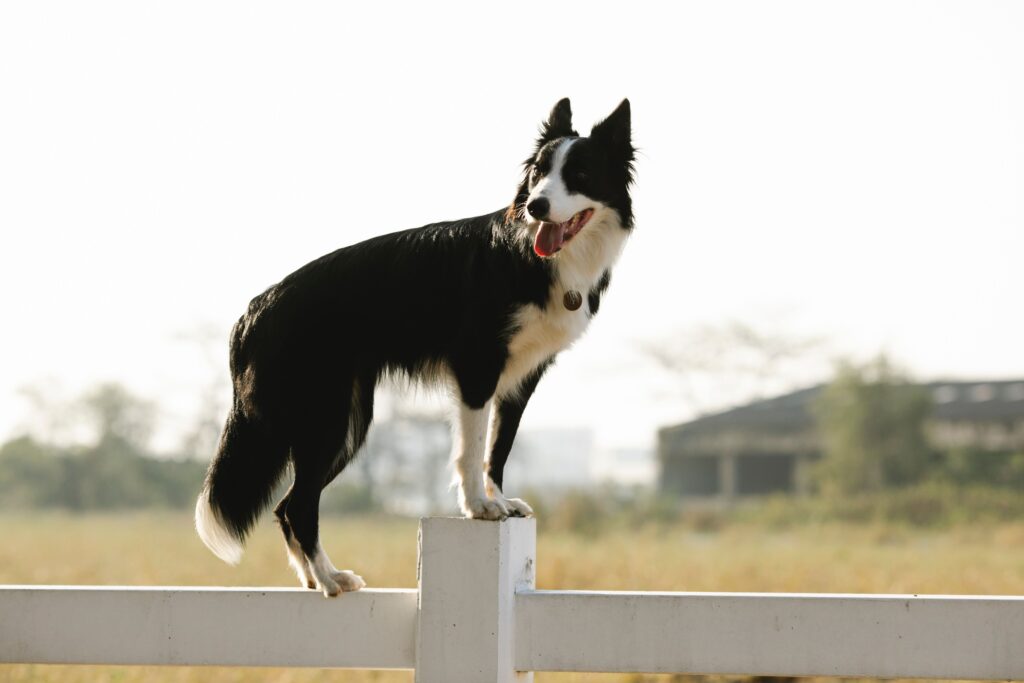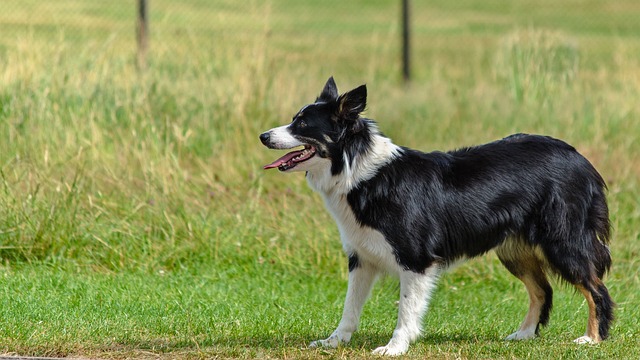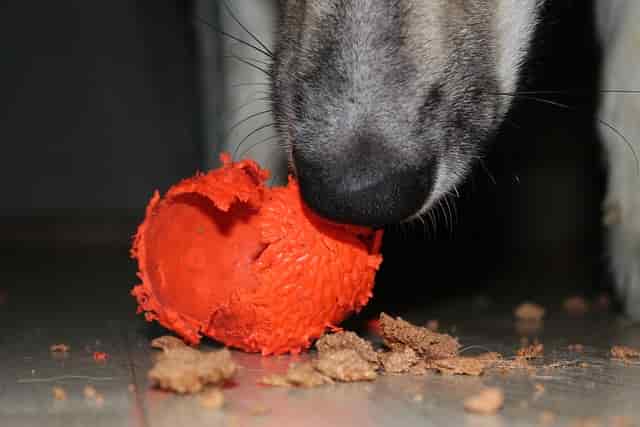
Border collies were originally bred to herd sheep in the Scottish Highlands. Their intense stare was a crucial tool for controlling the flock, as it allowed them to keep a constant eye on the sheep and anticipate their movements. This instinctual behavior has been passed down through generations of border collies, making it a defining trait of the breed.
While the stare may seem intimidating or even creepy to some people, it is simply a natural behavior for border collies. In fact, it is a sign of their intelligence and working ability. Understanding the reasons behind this behavior can help owners and trainers better communicate with their border collies and appreciate their unique characteristics.
Understanding Border Collies
Border Collies are a breed of dog that originated in Scotland, and they are known for being highly intelligent and energetic. They are often referred to as a “workaholic” breed, as they were originally bred for herding sheep and other livestock.
One of the most notable characteristics of Border Collies is their intense stare. This behavior is a result of their herding instincts, as they use their gaze to control and direct the movement of livestock. This stare can be unnerving to some people, but it is simply a natural behavior for this breed.
Border Collies are considered to be one of the most intelligent breeds of dog, and they excel in a variety of activities, including obedience training, agility, and flyball. They are also commonly used as therapy dogs and search and rescue dogs due to their intelligence and trainability.
Breeders have worked hard to maintain the intelligence and work ethic of the Border Collie, and as a result, they are a highly sought-after breed. However, it is important for potential owners to understand the breed’s high energy levels and need for mental and physical stimulation.
The Staring Behavior of Border Collies
The stare of a Border Collie is often referred to as “strong eye” or “sticky eye”. This means that they maintain intense eye contact with their target, whether it’s a sheep or their owner, in order to communicate their intentions and exert control. This behavior is not aggressive in nature, but rather a way for the Border Collie to establish dominance and assert their authority.
While staring behavior is a natural trait in Border Collies, it can also be a sign of boredom or anxiety. If a Border Collie is not given enough physical or mental stimulation, they may resort to staring as a way to occupy themselves. It’s important for owners to provide plenty of exercise and mental stimulation to prevent this behavior from becoming excessive.
In addition to their strong eye, Border Collies also have the ability to use a “loose eye” or “no eye” when herding. This means that they can use their body language and movement to control livestock without relying solely on eye contact. However, the strong eye is still an important part of their herding repertoire.

Training and the Stare
Commands and the Stare
Border collies are highly trainable dogs, which means that they can learn a variety of commands that can help control their staring behavior. One effective command to use is “look,” which can redirect your dog’s gaze away from whatever they are fixated on. It is important to use a clear and firm tone when giving commands to your dog, as they respond well to confident and consistent communication.
Positive Reinforcement and Staring
Positive reinforcement is a powerful tool in training your border collie to stop staring. When your dog looks away from whatever they are fixated on, reward them with a treat or praise. Over time, your dog will learn that looking away from something is a good behavior that results in positive consequences. It is important to be consistent with your rewards and praise, as this will reinforce the behavior you want to see in your dog.
Staring as a Form of Communication
Staring and Human Interaction
When a Border Collie stares at their owner, it can mean a variety of things. It can be a way for them to communicate their needs or desires, such as wanting to play fetch or go for a walk. It can also be a sign of loyalty and submission, as they are looking to their owner for guidance.
However, it’s important to note that staring can also be a sign of aggression or anger in some cases. If a Border Collie is staring at a human with a fixed and intense gaze, it’s important to assess the situation and ensure that the dog is not feeling threatened or intimidated.
Staring and Interaction with Other Pets
When it comes to interacting with other pets, Border Collies use staring as a way to communicate their intentions. For example, when playing with another dog, a Border Collie may use their intense stare to signal that they want to play or to initiate a game of chase.
However, staring can also be used as a way to manipulate other pets. For example, a Border Collie may use their stare to intimidate a smaller or less confident pet into submission.
The Impact of Staring on Behavior
Staring and Aggression
When a border collie stares at another dog or person, it may be seen as a sign of dominance or a warning to back off. If the other dog or person does not respond appropriately, the border collie may become aggressive.
It is important for owners to understand that staring is a natural behavior for border collies, but it is also important to recognize when it is becoming a problem. If a border collie is staring excessively or becoming aggressive, it may be necessary to limit their interactions with other dogs or people.
Staring and Obsession
In addition to potentially leading to aggression, staring can also be a sign of obsession in border collies. This breed is known for their high energy and intense focus, which can sometimes manifest as obsessive behavior. If a border collie becomes fixated on a particular object or activity, they may stare at it for extended periods of time.
While this behavior may seem harmless, it can become problematic if it interferes with the dog’s daily life or causes them to become anxious or stressed. If a border collie is exhibiting obsessive behavior, it is important to consult with a veterinarian or animal behaviorist to determine the best course of action.

Stimulation and Staring
One of the main reasons why border collies stare is to seek stimulation. These dogs have a high energy level and require a lot of exercise and mental stimulation to stay healthy and happy. When they are not given enough opportunities to burn off their energy, they may resort to staring as a way to release some of their pent-up energy. This can be especially true for dogs that are kept indoors for long periods of time or are not given enough opportunities to engage in outdoor activities.
Studies have shown that border collies that are given plenty of exercise and mental stimulation are less likely to exhibit staring behavior. Activities such as agility training, obedience training, and outdoor activities like hiking and swimming can provide the necessary stimulation to keep these dogs happy and healthy.
Staring and the Environment
One possible explanation for why border collies stare is that it helps them to focus on their environment. When herding, border collies need to be able to keep track of their surroundings and anticipate the movements of their flock. By staring intently at their surroundings, they are able to pick up on small details and changes in the environment that might otherwise go unnoticed.
Another possible explanation for why border collies stare is that it is a way for them to communicate with their owners. Dogs are known for their ability to read human body language, and many border collies are highly attuned to their owners’ movements and expressions. By staring at their owners, border collies may be trying to convey a message or get their attention.
It is also possible that staring is simply a form of play for border collies. Many dogs enjoy playing with toys, and border collies are no exception. By staring at a toy or object, they may be trying to figure out how to interact with it or trying to entice their owner to play with them.
Regardless of the exact reason for why border collies stare, it is clear that this behavior is an important part of their personality and should be celebrated. Whether they are herding cattle, playing with toys, or simply enjoying their environment, border collies are sure to captivate and entertain their owners with their intense gaze.
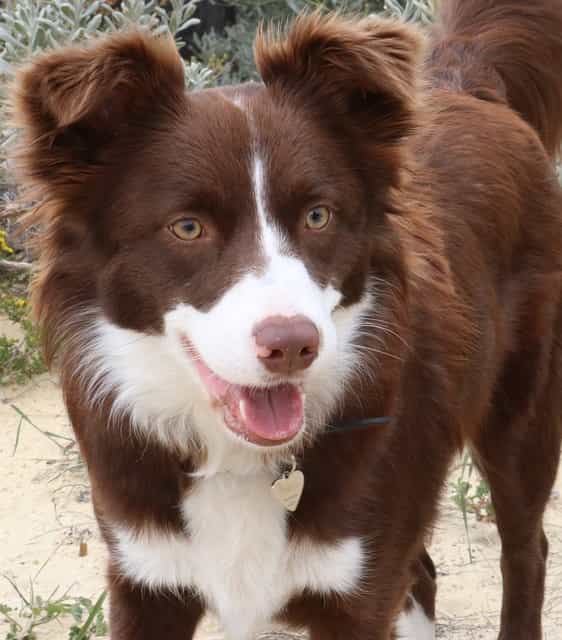
Understanding and Responding to Staring
Understanding Staring
When a border collie stares at you, it’s usually an attempt to communicate. Dogs use body language to convey their emotions, and staring is one way they can get our attention. They may be trying to tell you that they need something, such as food, water, or a walk. Alternatively, they may be trying to communicate their affection or seek reassurance.
It’s important to note that not all staring is the same. A border collie’s stare can range from intense and prolonged to soft and relaxed. The context of the stare is also important. For example, a border collie may crouch down and stare when they’re trying to intimidate or herd something. Similarly, they may stare and whine when they’re afraid or anxious.
Responding to Staring
When your border collie stares at you, it’s important to pay attention to their body language and respond appropriately. Here are some tips for responding to your dog’s stare:
- If your border collie is staring at you intently, try to figure out what they need. Do they need food, water, or a walk? Are they seeking attention or affection? Responding appropriately can help reinforce positive behaviors and prevent negative ones.
- If your border collie is crouched down and staring, they may be trying to intimidate or herd something. In this case, it’s important to redirect their attention to a more appropriate activity.
- If your border collie is staring and whining, they may be afraid or anxious. In this case, it’s important to provide reassurance and comfort. Try to calm your dog down and redirect their attention to a more positive activity.
- If your border collie is staring and their tail is wagging, they’re likely expressing affection and seeking attention. In this case, it’s important to respond positively and provide affection and attention.
Frequently Asked Questions
What is Border Collie herding eye?
Border Collie herding eye is a unique trait that allows them to control the movement of livestock. This is accomplished through a fixed stare that is intense and unwavering, which can be intimidating to both humans and animals. This stare is a result of their breeding and is a natural instinct that Border Collies use to control their flock.
Why does my dog stare at me constantly?
Border Collies are known for their intense gaze, and they use it to communicate with their owners. They are highly intelligent and use their stare to read their owner’s body language and emotions. It’s their way of trying to understand what their owner wants or needs.
Why do Border Collies stalk?
Stalking is another instinctive behavior that is common in Border Collies. This behavior is a result of their herding instincts and is used to control the movement of livestock. When Border Collies are not properly trained or exercised, they may transfer this behavior to other animals or people.
Why do Border Collies nip?
Nipping is another behavior that is related to their herding instincts. Border Collies use their mouths to control the movement of livestock, and this behavior can sometimes transfer to their human owners. Nipping can be a sign of over-excitement or a lack of training, and it’s important to address this behavior early on.
Why do Border Collies bark so much?
Border Collies are vocal dogs and use their barks to communicate with their owners. They are highly intelligent and use their barks to express their needs or to alert their owners to potential danger. However, excessive barking can be a sign of boredom or a lack of exercise, so it’s important to provide them with plenty of mental and physical stimulation.
Why does my Border Collie lick me so much?
Licking is a natural behavior in dogs and is often a sign of affection. Border Collies are known for their loyalty and affectionate nature, and they use licking as a way to show their love for their owners. However, excessive licking can be a sign of anxiety or stress, so it’s important to monitor this behavior and address any underlying issues.







